Military-technical cooperation of Russia. On the wave of stability
Military-technical cooperation of Russia with foreign customers in numbers
The annual volume of Russian exports of weapons and military equipment in recent years has been steadily keeping near the 15 mark of billions of dollars, while the total order book exceeds 50 billions of dollars. According to Vladimir Putin, the financial indicators of exports in the framework of the military-technical cooperation of the Russian Federation with foreign countries have been growing for four years in a row and today are closely approaching the 16 billion mark. According to the president, the positive dynamics of indicators is maintained in January-May 2019.
The country's currency earnings from the export of various military products increased by 45 percent, and the total portfolio of orders for Russian weapons systems and military equipment rose to record levels - almost 54 billion dollars. Thanks to these indicators, Russia continues to hold the second place in the world in the export of arms and military equipment, second only to the United States. Positive dynamics in the field of military-technical cooperation is observed in Russia throughout the 21st century. For example, back in 2007, the annual sales of weapons and military equipment to foreign customers amounted to more than 7 billions of dollars. Over the past years, this figure has more than doubled. At the same time, the portfolio of orders for weapons and military equipment in the same 2007 year was estimated at 32 billion dollars, over the following years, the order book grew almost 1,7 times.
Despite the growth of indicators, it can be stated that in modern realities Russia has practically reached the limit on military-technical cooperation. In recent years, the Russian defense order book exceeds 50 billion dollars, and annual sales revolve around the 15 billion dollar mark. Such large orders as the Indian contract for the supply of Triumph C-400 ZRS systems can not significantly affect the size of the “portfolio”, although only this single contract is estimated at about 5 billion dollars. While maintaining the level of revenues from the supply of arms and military equipment to foreign partners, Russia loses its total share in the international arms market. According to experts, this may be cause for alarm.
According to the newspaper Vzglyad, citing Ruslan Pukhov, director of the Center for Strategy and Technology Analysis (CAST), in recent years, the arms market has shown very high growth, according to various expert estimates, from 30 to 50 percent. Against this background, the volume of contracts concluded by Russia remained the same or even increased in monetary terms, but at the same time, Russia's share on the world market is decreasing. “Roughly speaking, the international arms market is growing faster than Russia's share in this market. In absolute figures, growth is noticeable, but in relative terms - a fall, because the market is growing faster, ”said Ruslan Pukhov.
Military-technical cooperation of Russia covered with stability
In November, at the meeting of the regular Commission on military-technical cooperation of the Russian Federation with foreign countries, Vladimir Putin noted that "in recent years, the volume of export supplies of military products has been at a consistently high level." Translating from the language of Russian high-ranking officials to the universal one, it can be stated that it is a question of stagnation. The figures achieved by the Russian defense industry are indeed impressive, but they have remained almost unchanged over the past few years. There is an increase compared to the first two terms of Putin’s presidency, but compared to the same 2018 year, this is marking time. Having opened the website of the Federal Service for Military-Technical Cooperation, we learn that at the end of 2014, the export of Russian military products abroad exceeded 2014 billion dollars and stable The last three years (that is, since 2012) has been kept at this level, and the export order portfolio stable and exceeds 50 billion dollars.
Over the past five years, nothing has changed significantly. Yes, there are new large contracts, but they do not ensure the growth of economic indicators. The military-technical sphere of Russian exports, like the whole country, was covered by a wave of stability. The last such wave in our country belongs to the era of the reign of Leonid Brezhnev. The stable Brezhnev years are now known as the era of stagnation. It did not end with anything good for the country. Stable and obese years with high oil prices passed for the state, and there were no reforms that could transform the Soviet economy and society. Today, the Russian government is in a hurry to attack the same rake without carrying out systemic reforms.
However, stability, which is served as a plus, for Russian citizens is a product of purely domestic consumption. But where it comes to exporting products, this term is no longer acceptable, especially in such a sensitive area as arms exports. For the Russian economy, which is more than 3 / 4 dependent on the supply abroad of energy and metals, defense is the only competitive industry that drives a ready-made technologically complex product on a commercial scale. The supply of weapons and military equipment is not just a lively currency and revenues to the state budget, but also the prestige of the state. It is no coincidence with the stability in military-technical cooperation decided to deal at the highest level.
New strategy for military-technical cooperation
The new strategy of military-technical cooperation with foreign customers, about which Putin spoke, should increase the effectiveness of this activity. It is known that the new strategy should coordinate financial, economic, technical and political-diplomatic measures. At the same time, the specific details of the strategy for the general public remain unknown.
According to Putin, the new challenge that the Russian defense industry must meet is the increasing interest of foreign customers in localizing military production in their own territory and involvement in joint research and development work. Russia seeks to meet new challenges. “Over the past five years, the volume of joint research and development to develop new types of weapons and modernize existing equipment has increased by 35 percent. This practice needs to be developed, especially the successful experience of cooperation in the production of military equipment and various weapons. In cases where this is in the mutual interest, it is also necessary to engage in joint development work and consider the possibility of transferring Russian technology to foreign customers, ”the Russian president noted.
Russia has achieved the greatest success in this area today with its long-standing partner, India. In India, the Russian main combat units are also successfully gathering Tanks T-90S, and fourth-generation multi-functional fighters - Su-30MKI (230 kits for licensed assembly delivered). At the same time, Russia and India are jointly working on a sea and air-based BraMos missile, as well as a BraMos-2 hypersonic missile. Also, a separate line of cooperation between Russia and India in the military-technical sphere is the transfer of Delhi to the rental of nuclear submarines. According to the Indian military, Russia is ready to share similar technologies only with Delhi. The first nuclear submarine Nerpa was leased to the Indian side for a period of 10 years in 2012. The boat became part of the Indian Navy under the new name "Chakra".
Also, a new challenge for the Russian military-technical cooperation is foreign sanctions, primarily American ones. Sanctions did not lead to a drop in the volume of deliveries of Russian military-purpose products, but they definitely prevent the growth of exports of such products. Today we can speak directly about this. According to the director of the Strategy and Technology Analysis Center, Ruslan Pukhov, US sanctions can be a threat that leads to a reduction in Russia's client base on the international arms market. For example, representatives of the Philippines have already publicly stated that because of the sanctions imposed by the United States they cannot transfer funds, therefore they will not acquire Russian weapons with all their desire. Another example is Kuwait, which has frozen a large contract for the supply of Russian T-90MS tanks. Kuwaiti military says that the contract is not canceled, but postponed. The fate of this deal also lies in the current sanctions, under which the Russian defense and diplomats must work. At the same time, it was Kuwait that was supposed to be the starting customer for the upgraded version of the T-90 tank, and the number of machines purchased was estimated at 146 units.
True, in some aspects the sanctions imposed by the United States can play into the hands of Russia. This can happen in a situation with Turkey. Ankara, which acquired the Triumph C-400 air defense systems, has angered Washington, the White House is seriously discussing the possibility of not cooperating with Turkey to produce the fifth-generation F-35 aircraft and cancel the contract for the supply of Turkish Air Force fighters. Under these conditions, Turkish officials have repeatedly stated that if the United States refuses to sell fifth-generation F-35 fighter jets to Turkey, Ankara will seriously consider the possibility of purchasing combat aircraft in Russia. At the same time, Turkey is preparing for possible sanctions by Washington, purchasing spare parts for armswhich was acquired in the United States, reports Bloomberg.
Another challenge to Russia in the international arms market is the growth of proposals from countries that have not recently been serious players in this market. The number of countries that are able to produce competitive samples of weapons and military equipment is growing every year. China, which most recently was the main buyer of Russian weapons, is gradually expanding its own production and actively promoting for export high-technology armaments and military equipment that compete with Russian products.
Also a big breakthrough made South Korea and Turkey. South Korea, in addition to successful self-propelled artillery systems, is actively promoting warships and equipment on the world market for fleet, and Turkey is actively promoting unmanned systems on the market, including strike Drones, which in Russia are only in the testing stage. At the same time, Turkey is also actively selling lightly armored wheeled vehicles, other samples of which are in no way inferior to Russian ones, and in a number of positions surpass domestic vehicles. All this suggests that competition in the global arms market is only increasing.
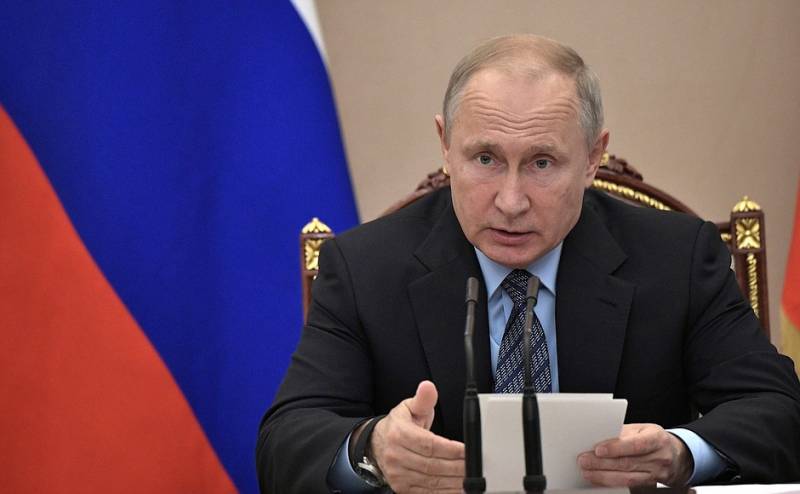
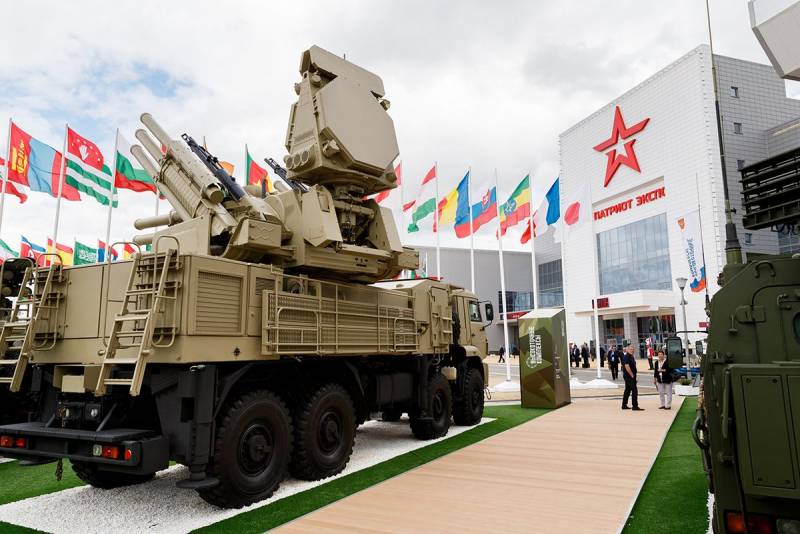
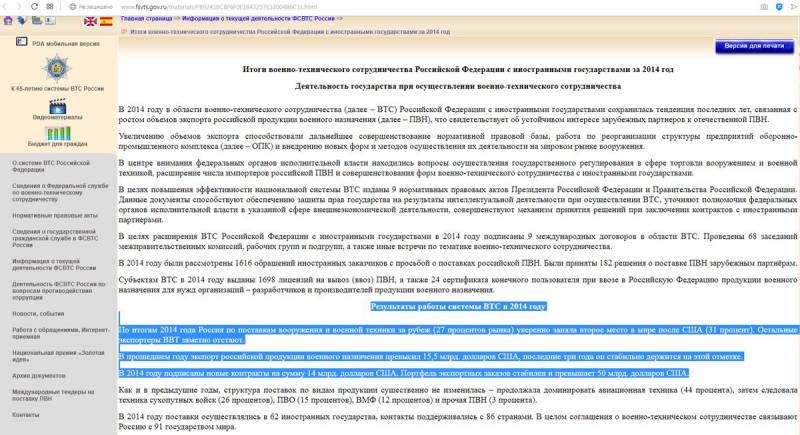
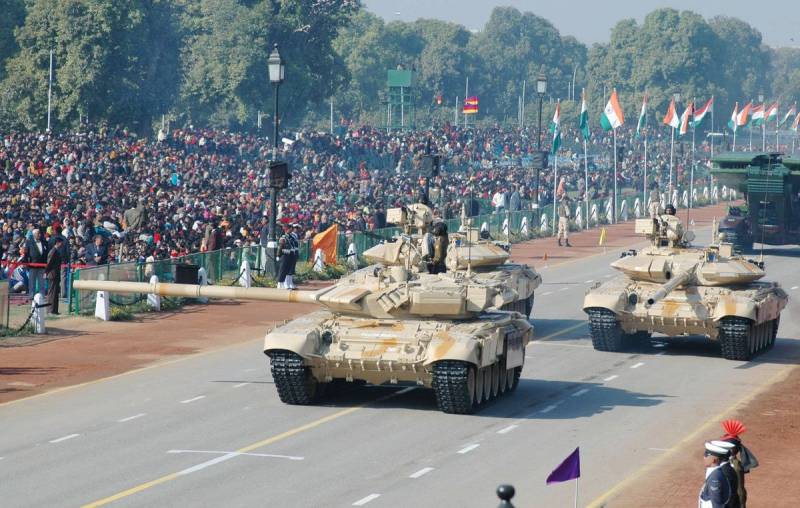
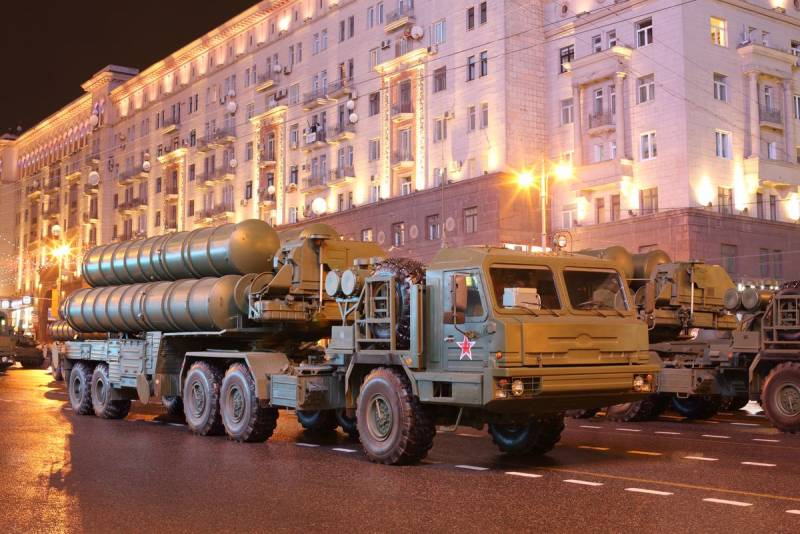
Information